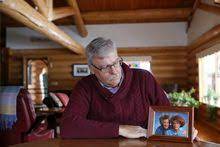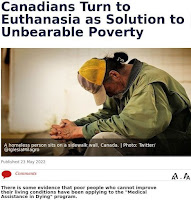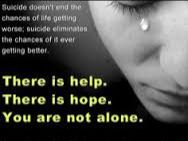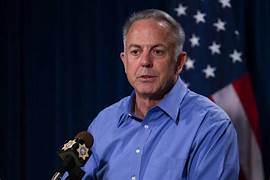Alex Schadenberg
Executive Director, Euthanasia Prevention Coalition
The article begins with the story of Tarra Carlson, who is autistic and ADHD. Carlson says that she is “petrified of growing old with a disability.” She would have difficulty applying and navigating through the disability support programs and her goal is to die before her husband died.
Gillmore writes:
Compared with disability support, medical assistance in dying, or MAID, seems relatively easy to request. Written applications differ by province or territory but are fairly straightforward; most are only a few pages long. For some of them, to confirm eligibility, an applicant simply has to sign and initial certain statements—for example, that they have an irremediable and grievous medical condition and are in a state of advanced decline. If any more health conditions were to crop up on top of her disability, eroding her independence completely, says Carlson, she’s pretty sure she’d qualify for MAID. “It’s a one-way ticket,” she says, “because you have no choice.”As much as the story is irregular, the story is common. Gillmore continues by explaining the changes that occurred when Canada expanded euthanasia and passed Bill C-7 in March 2021.
That rosy perception began to darken when, in 2021, the legislation was expanded to include people whose deaths are not considered reasonably foreseeable—an option now known as Track Two. The development particularly angered many disabled Canadians. The change in legislation made it possible for disabled people to qualify for MAID even if they weren’t terminally ill. Over the past year, according to news reports, people have considered applying for or have died by MAID for reasons such as insufficient housing and meagre social supports that have left them in perpetual poverty. Carlson knows people with disabilities who have applied for MAID because they couldn’t find proper supports to live. “Canada has made it so that it’s become the only resource or recourse that people who are marginalized or poor have,” she says.
In 2024, Canada plans to further extend eligibility to people whose sole underlying condition is mental illness, prompting many to question whether MAID has gone too far. (The government was due to introduce this expansion in March 2023 but passed a law earlier this year to extend that deadline, citing the need to give medical professionals more time to prepare.)
 |
| Catalina Devandas-Aguilar |
Concerns about the legislation aren’t new. Some say it was flawed from the outset and that Canada’s assisted dying laws have always singled out disabled people by listing “disability” as a type of medical condition that could guarantee eligibility. In 2019, before Track Two was legalized, Catalina Devandas-Aguilar, then UN special rapporteur for the rights of persons with disabilities, wrote that she was “extremely concerned about the implementation of the legislation on medical assistance in dying from a disability perspective.” In her report on the country’s compliance with the United Nations Convention on the Rights of Persons with Disabilities—which Canada ratified in 2010—she mentioned troubling accounts of people with disabilities who were institutionalized and offered MAID. She recommended the government investigate such claims and “establish adequate safeguards to ensure that persons with disabilities do not request assisted dying simply because there are no community-based alternatives or palliative care.”Gillmore refers to the 90 day waiting period required in the law for people who are not terminally ill and then states:
In February 2021, three UN experts on the rights of seniors and people with disabilities as well as on human rights and extreme poverty wrote a letter to the federal government, urging it not to legalize Track Two. “There is a grave concern,” the letter stated, “that, if assisted dying is made available for all persons with a health condition or impairment, regardless of whether they are close to death, a social assumption might follow (or be subtly reinforced) that it is better to be dead than to live with a disability.”
But ninety days isn’t long enough for comprehensive reflection, says Virginia Duff, a Toronto-based psychiatrist. Most people, she says, would not likely reverse or even reconsider such a decision within that time frame. This is especially true, she adds, for people who have recently acquired a disability and are adjusting to its impact on their lives. “They’re in a crisis at the beginning,” says Duff. “They’re going to be regarding their future in a certain light and often in a negative light. But they don’t know at that point what they don’t know. And they don’t know that life with a disability can be very different from what they imagined it to be.”Gillmore then explains that the number of Canadian euthanasia deaths is 20x the number of assisted suicide deaths in California.
...For Duff, who is visually impaired, the way we talk about MAID expansions ignores the complexities and years it may take to treat conditions such as mental illness. The language we use around it is also euphemistic: “The title of the act is ‘medical assistance in dying,’” she says. “But these aren’t people who would otherwise be dying. We’re not just assisting them. We’re actually making it happen, which is very different.”
For some, the availability of MAID isn’t so much a concern as the ease with which this country offers it. According to Health Canada, 31,664 people died by MAID in the five years after legalization. In 2021 alone, the number of medically assisted deaths in Canada—just over 10,000—was about twenty times higher than in California, a state with an assisted suicide program and similar population size. (In California, eligibility is granted only to those who are terminally ill.) Track Two was introduced in Canada in March 2021, and in less than a year, 219 people who were presumably not imminently dying had received it.
 |
| Heidi Janz |
“Canada has become a poster child for how bad MAID can become,” says Heidi Janz, a long-time disability rights activist and playwright. An associate adjunct professor at the University of Alberta, she studies and teaches the ethics around end-of-life care and disability. Janz, along with Catherine Frazee, a professor emerita of disability studies at Toronto Metropolitan University, started the GRIM Project in 2022 to document the stories of disabled people who have considered MAID or have died by it. (Both Janz and Frazee appeared as witnesses for the AMAD committee, as well as several other sources I interviewed for this story.) The project takes its name from the Criminal Code’s language of a “grievous and irremediable condition.” Janz and Frazee have spent years listening to the stories of disabled Canadians, many of whom live in poverty and struggle with social isolation. MAID, says Janz, “has become an acceptable solution to poverty for people with disabilities.”Kerri Joffe, a lawyer who works with the disability community expresses that the problem is the language of Canada's euthanasia law. Gillmore writes:“These problems predate the MAID system,” says Frazee. She frequently hears stories of disabled Canadians turning to MAID out of desperation and thinks about them every day. They tell her they don’t want to die yet the government seems to be pushing them to. “But the MAID system makes it all a perfect crime because the MAID regime destroys the evidence,” she says. “It destroys the lives of the people who were here to report their experience of poverty and alienation and stigmatization and devaluation.”
Catherine Frazee
But poverty is just “one piece of the puzzle” of why disabled Canadians are considering or are being approved for MAID even when they’re not dying, says Kerri Joffe, a staff lawyer with Arch Disability Law Centre, a Toronto-based legal clinic that focuses on disability rights law and policy in Ontario. The problems of disability poverty and the lack of affordable, accessible housing and proper home-care supports need to be addressed, she says. But Joffe, and others, have raised concerns that Canada’s MAID legislation denies disabled Canadians equal rights to life. The government needs to address this, she says, by removing Track Two altogether or changing the law “fundamentally so that it would comply with international human rights law.”Gillmore writes about the February 2023 parliamentary report on euthanasia that advocated for further expansions of euthanasia to include euthanasia by advanced directive and euthanasia for "mature minors." Gillmore explains:
Yet the report also spoke favourably of further expansions, such as permitting advance requests for MAID. This would potentially allow people to stipulate under what circumstances they would want to receive MAID should they lose their capacity to consent to it. The committee also suggested that MAID be made available in certain circumstances to “mature minors,” though it recommended further consultations. (Currently, Belgium and the Netherlands are the only countries with comparable provisions for those under eighteen.) There should be no age limit to who can consent to receiving MAID, the report states; applicants should qualify if they are deemed capable of making the decision, though it does not go further to define “capable.” The committee also recommended that parents and guardians be consulted during the process, though not that they be required to approve of their child’s decision: “the will of a minor who is found to have the requisite decision-making capacity [must] ultimately take priority,” the report states.G
 |
| Konia Trouton |
Trouton, who now lives in Ontario, says she’s aware that some Canadians have received MAID even when the main cause of their suffering was a socio-economic factor not directly related to their qualifying medical condition. But that doesn’t technically make those cases ineligible. “The suffering and the irremediable disease don’t have to be the same,” says Trouton, citing the law’s language around safeguards: it does not explicitly state the need for suffering to be caused by a medical condition.Trouton explains that a patient needs to have considered medical treatment but is not required to have tried medical treatment and explains that one patient needed five interviews before being approved for euthanasia. Gillmore states:
She points to other safeguards meant to ensure MAID applications are vetted appropriately. Applications go through at least two rounds of review. Two clinicians have to separately assess the MAID request to determine whether the applicant meets the medical criteria for it as outlined in the law, a step that can be done virtually.
Trouton usually calls her patients the day before their scheduled death to make sure they still want MAID. On the day of, to confirm that they understand what will happen to them, she asks them to tell her who they are and why they are there. “We do the same thing in surgery,” she says.
 |
| Madeline Li |
Li developed the MAID program at UHN and says the law has always lacked sufficient safeguards, and this has only become more apparent as MAID has expanded. Specifically, the law needs to be more clinically informed, says Li, who is also a scientific researcher. The terms “reasonably foreseeable” and “incurability” must be defined medically, with specific time frames attached to the former and further explanations around the latter. A patient shouldn’t be deemed to have an incurable illness, for example, if they’ve refused treatments, she says. And providers need a clearer interpretation of what constitutes suffering in the context of MAID. “There needs to be clarification that the suffering needs to be medical suffering directly related to the medical condition,” she says. “And that sources of suffering indirectly related to the medical condition don’t qualify.”Gillmore reports Li as saying:
Li would also like an oversight body to qualitatively review complex cases. What she’s proposing currently doesn’t exist on the federal level in Canada. She thinks clinicians need to be legally required to have more detailed conversations with patients who say they want MAID—conversations that don’t take the patients’ request at face value and aim to get at the best medical option for them.
“The problem has been that the people who first entered MAID work are now very experienced, but they’re confusing experience with expertise. They’ve been very focused on ‘Does a patient qualify?’ and not ‘Should a patient have MAID?’”Gillmore then writes about the impending expansion of euthanasia to people with mental illness.
The looming expansion of MAID, under Track Two, to include people with mental illnesses has raised red flags for several psychiatrists, who say that allowing people with mental illnesses to die by MAID could rob them of the chance to find treatments that enhance their lives. According to Duff, it could violate the principles of suicide prevention. “One of the tools that we use to help prevent suicide is to eliminate the means,” she says. And if assessors comply with only the minimum requirements for the MAID expansions, “we’re just handing [patients] the means and not questioning why they want to kill themselves.”
 |
| John Maher |
“To say this is not suicide inducement or that it’s not suicide, I find bizarre,” says John Maher, a Barrie, Ontario, psychiatrist who has spent twenty years working with assertive community treatment teams. These twelve-person multidisciplinary teams work with people who have severe mental illnesses, including schizophrenia. There’s no consensus among psychiatrists that mental illnesses are irremediable, that they never get better. Maher argues that even patients with serious mental illnesses can improve; they often just need more time to find the right treatments that work for them—and for those treatments to be available to begin with.Mitchell Tremblay wants to die by euthanasia based on his mental illness but he is concerned that the law will be abused. Gillmore writes:
Mitchell Tremblay says he plans to apply for MAID as soon as it becomes available for people with mental illnesses. Based in Guelph, Ontario, he has a disability and has been vocal online about his financial hardship... But even though he wants MAID for himself, he’s concerned that some other MAID applicants will be approved when they don’t actually have a serious, diagnosed, chronic mental illness—people who are experiencing a major depressive episode, brought on by events like a romantic breakup or the loss of a job or home, and whose mental health might improve with the right treatment.Maher states that with MAID for mental illness it won’t be clear how doctors should determine which suicidal patients will receive psychiatric care and which will be assessed for MAID. Gillmore continues:
“I think it’s going to be a national blight,” he says about expanding MAID eligibility while people don’t have proper supports. “There has to be all the avenues explored before MAID is the final option there for them.”
“Suicide prevention work is about giving people hope: helping them make sense of suffering, giving them a sense of purpose in life, putting in speed bumps at those points in time when things look like there’s no hope of recovery,” says Maher. “The whole point of my team—our services, our care philosophy—is we don’t quit. We don’t go away. We don’t stop helping. We don’t stop trying to reduce suffering, we don’t stop helping people heal. We’re a recovery model.”
 |
| Gary Hertgers |
Wilma had been increasingly despondent since 2008, when her twin and long-time roommate, Jenny, died of cancer. Once a small business owner, Wilma had stopped working full time in the years after Jenny’s death. She increasingly complained of pain, Gary says. He remembers that she always seemed to be rotating through appointments with various specialists—oncologists, cardiologists, rheumatologists. Gary wanted to help his sister, and he and his family tried. But Wilma could be difficult at times, and he needed to set up boundaries for himself, he says. Still, his grief over Wilma’s death is unlike anything he’s ever experienced.Gary contacted Wilma's friends, who were willing to provide her help, but none of them knew of her plan to die. Gary recently told the government committee that Canada's euthanasia law needs to be retracted.
This is Gary’s third time grieving a sibling—and perhaps the most complicated. When he was almost sixteen, he watched his older brother, Martin, drown. It took him years to find some peace with respect to Martin’s death. He hasn’t come to that peace yet about Wilma’s.
Gillmore then asks philospher Charles De Konink about euthanasia. De Konink states:
“What people desire most is to be loved,” especially when they’re dying or are in pain, says De Koninck. “And so many people are left alone in hospitals or in big houses, where nobody comes to see them. So they’re just stressed. They need friendship. They need concern. They need palliative care in that sense.”Gillmore ends her article the way it began, with Tarra Carlson who is enjoying her life with her husband. She recognizes that people don't understand her or her disability, but she says that her life is not all doom and gloom.
For De Koninck, the existence of MAID should prompt questions about what is causing people to decide that death is better than life. The law’s vast acceptance in Canadian society, he says, is evidence that people have lost hope, that they are alone, or that they don’t have meaningful relationships.
Gillmore doesn't answer the question that her article is asking but after interviewing a myriad of people it appears clear that Canada's euthanasia law has gone too far.
I believe that Canada went too far when it legalized euthanasia, meaning, Canada gave physicians and nurse practitioners the right in law to kill their patients.


.jpg)













